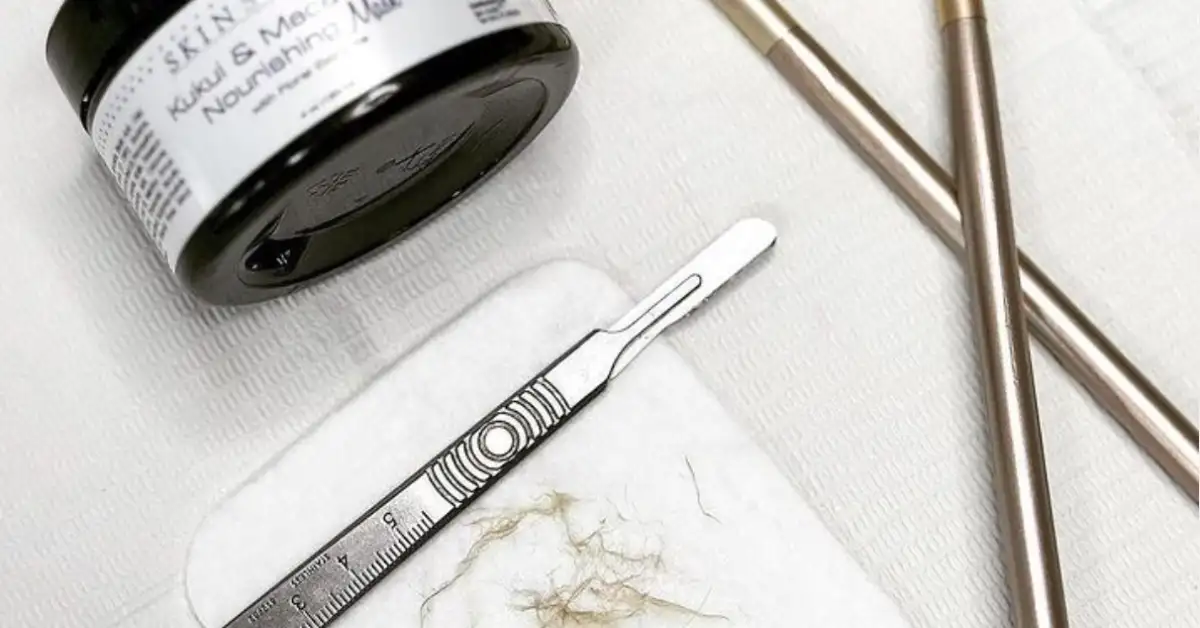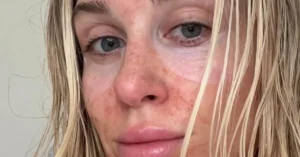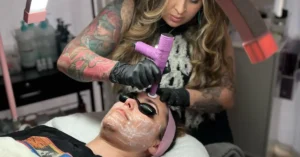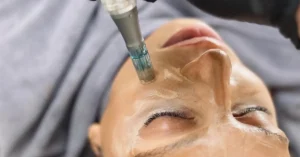Are you irritated by the fine hairs and dead skin on your face? If this is the case, you are definitely not alone. Like many people, the allure of dermaplaning as a remedy for these problems caught my attention too. Yet, I hesitated due to a common misconception – the idea that dermaplaning could cause hair to grow back thicker.
This misconception left me wondering if the potential benefits were worth the perceived risk. Intrigued and determined to uncover the truth, I embarked on a journey of research and discovery. My goal was to separate fact from fiction and provide clarity on whether dermaplaning could indeed lead to thicker, coarser hair.
Join me as we delve into the world of dermaplaning and explore the real effects of this cosmetic procedure. I’ll provide you with valuable insights and expert opinions to help you make an informed decision about whether dermaplaning is the right choice for you.
Table of Contents
Does Dermaplaning Make Hair Grow Back Thicker?
According to dermatologists, dermaplaning does not make hair grow back thicker. In fact, it’s a common misconception that shaving or dermaplaning causes hair to grow back darker or coarser. Hair will grow back at a normal rate and texture, just like before the treatment. However, if you have a hormonal imbalance, it may affect the thickness and texture of your hair.
While dermaplaning has been gaining popularity as a way to exfoliate and remove peach fuzz, some people still worry about the potential side effect of thicker hair growth. In this article, we’ll dive deeper into the topic of whether dermaplaning makes hair grow back thicker, and explore the benefits and drawbacks of this popular beauty treatment.
What is Dermaplaning?
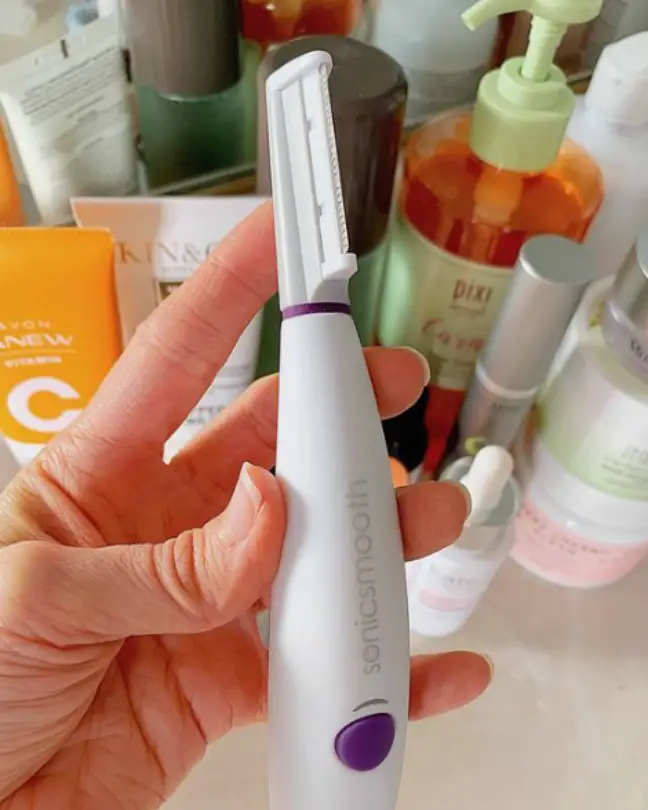
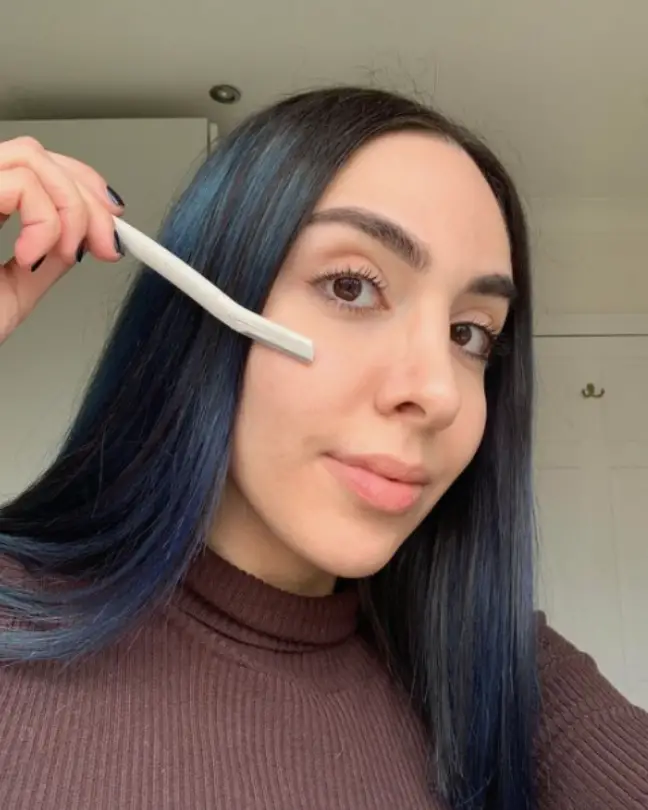
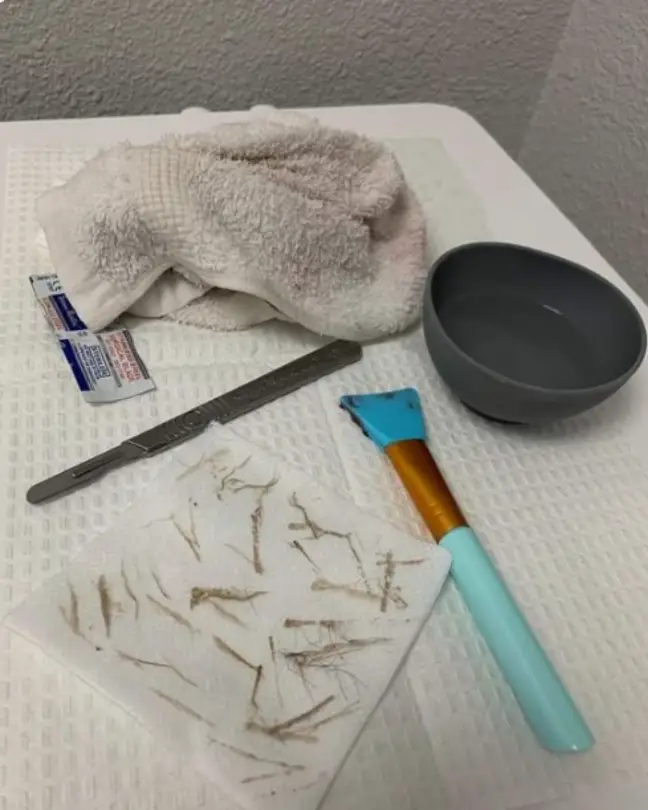
I recently tried dermaplaning, a popular skincare treatment that involves using a surgical scalpel to scrape away the top layers of skin and vellus hair (peach fuzz) from your face. The treatment left my skin feeling smooth and glowing, but I couldn’t help but wonder if it would make my facial hair grow back thicker.
According to the experts at Cleveland Clinic, dermaplaning is a minimally invasive cosmetic procedure that can help reduce the appearance of scars or signs of aging. During the treatment, a healthcare provider uses a special instrument to shave away the uppermost layers of your skin. The procedure is typically done on the face, but it can also be performed on other areas of the body.
While dermaplaning can leave your skin looking and feeling smoother, it is important to note that the treatment does not yield permanent results. As the top layer of skin naturally sheds off, the hair will grow back. However, there is no evidence to suggest that dermaplaning will make your hair grow back thicker or darker.
In fact, according to a POPSUGAR Beauty article, dermaplaning does not affect the hair follicle or its growth pattern in any way. The article also notes that removing the vellus hair can actually help your skincare products penetrate deeper into your skin, resulting in a more effective treatment.
Pro Tip: If you decide to try dermaplaning, be sure to choose a reputable provider who is trained and experienced in the procedure. It is also important to follow a proper skincare routine after the treatment to maintain the results and keep your skin healthy and hydrated.
Common Misconceptions About Dermaplaning
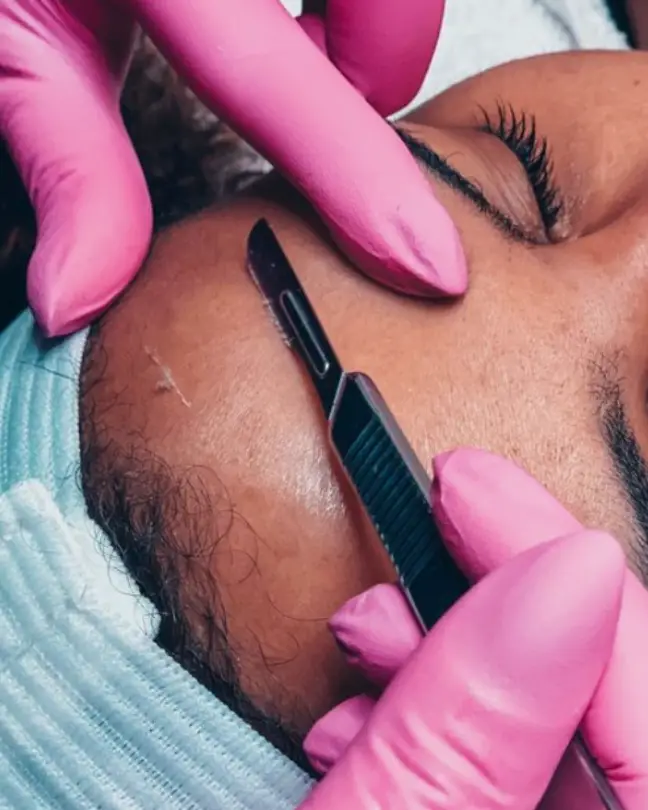
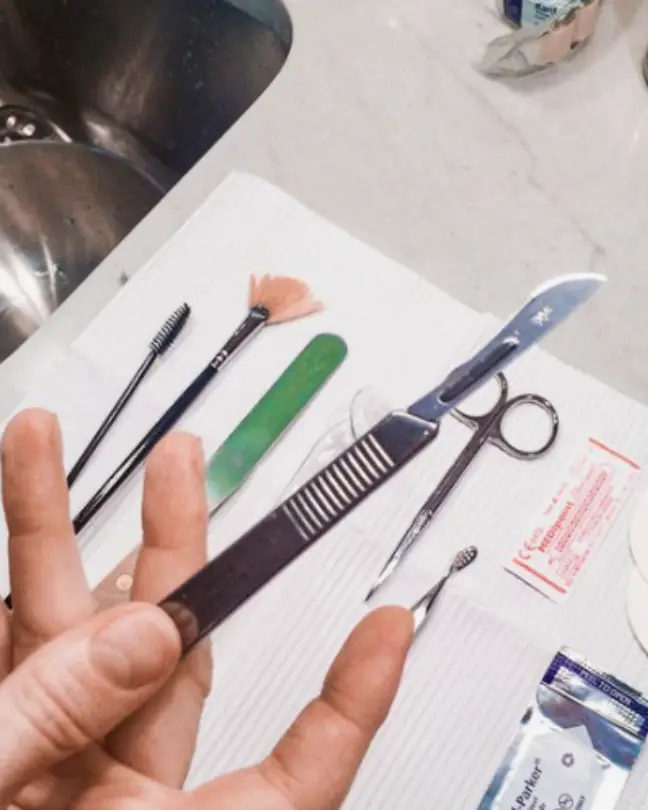
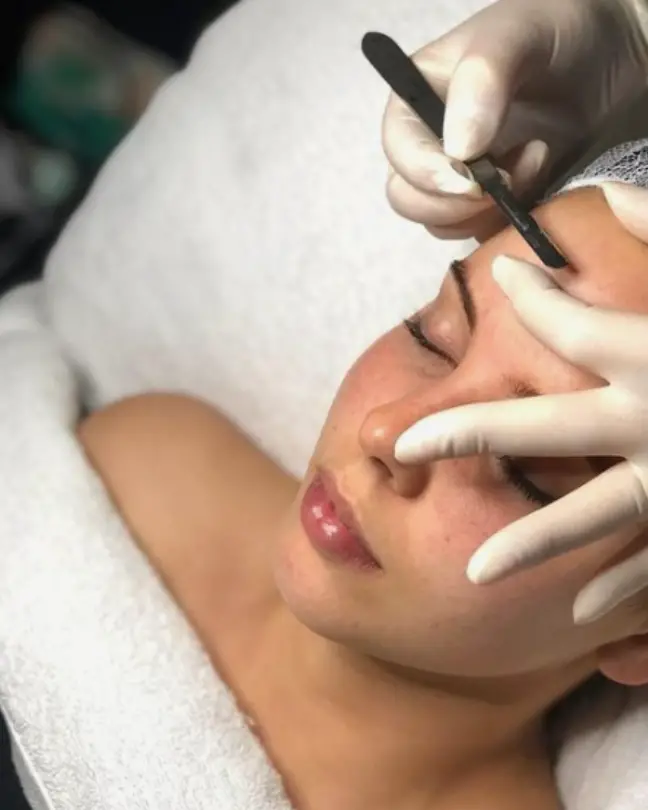
As someone who has undergone dermaplaning multiple times, I can attest to the many benefits of this skin rejuvenation treatment. However, there are also several common misconceptions about dermaplaning that I would like to address.
First and foremost, many people are concerned that dermaplaning will cause their hair to grow back thicker and darker. This is simply not true. Dermaplaning removes the fine vellus hair on the face, also known as peach fuzz, but it does not affect the growth rate or thickness of the hair. In fact, the hair will grow back the same as it was before the treatment.
Remember: If you are considering dermaplaning, it is important to choose a licensed and experienced aesthetician to perform the treatment. They will be able to assess your skin type and recommend the best course of action for your individual needs.
Another misconception is that dermaplaning is painful. This is not the case. The treatment is relatively painless and involves using a surgical scalpel to gently scrape away dead skin cells and peach fuzz from the surface of the skin. It may feel slightly uncomfortable, but it should not be painful.
Some people also believe that dermaplaning is only suitable for certain skin types. However, this is not true either. Dermaplaning is safe and effective for all skin types, including sensitive skin. It can help to improve the texture and tone of the skin, reduce the appearance of fine lines and wrinkles, and promote a more youthful and radiant complexion.
Scientific Explanation Of Hair Growth After Dermaplaning
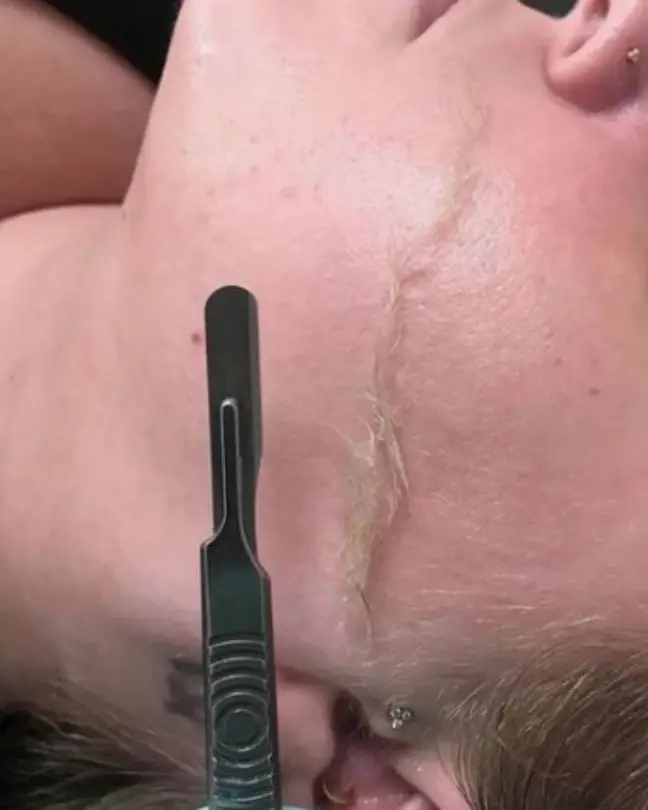
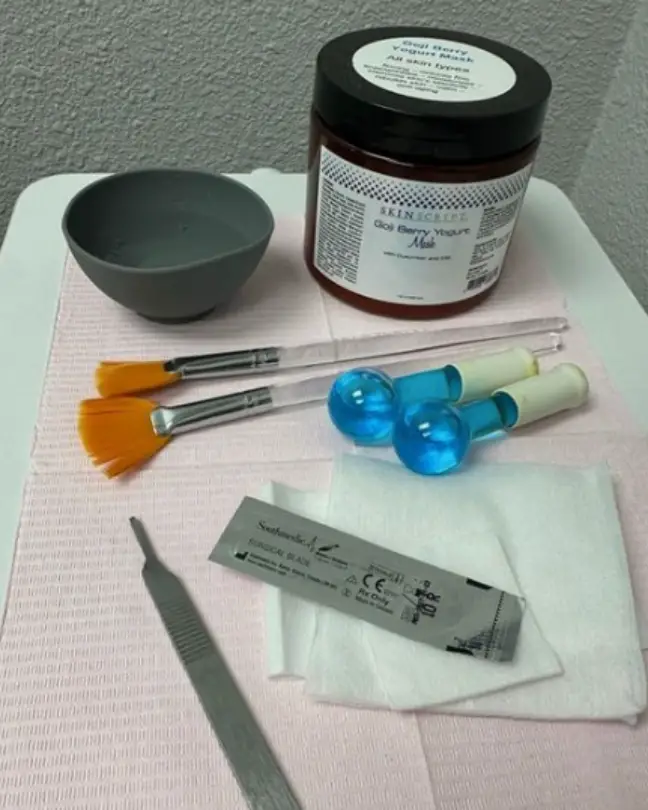
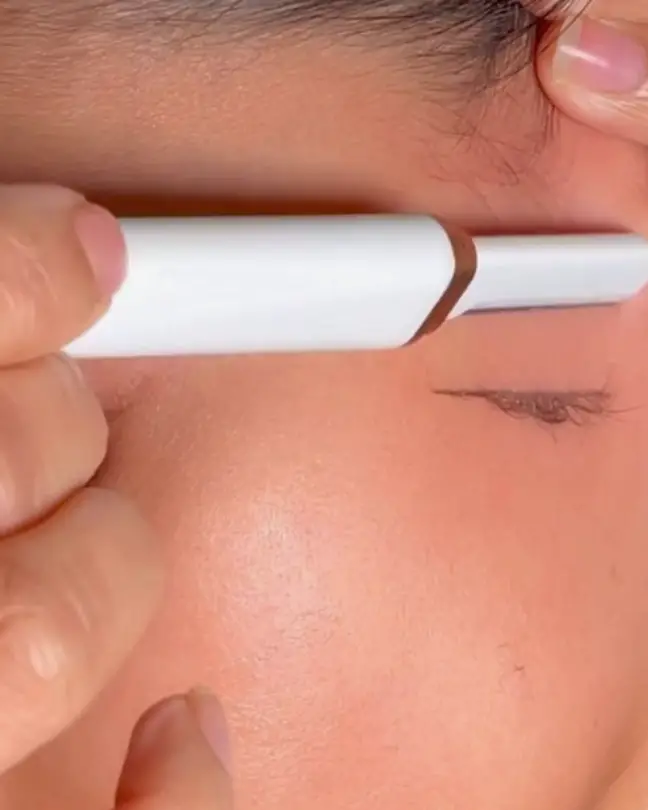
As someone who has undergone dermaplaning, I was curious about the effect it would have on my hair growth. Many people believe that dermaplaning makes hair grow back thicker, but is there any scientific evidence to support this claim?
According to dermatologists, dermaplaning does not actually affect the hair follicle or the rate of hair growth. When the vellus hair, or peach fuzz, is removed during dermaplaning, it is only the hair shaft that is being removed, not the hair follicle itself. The hair follicle remains intact and will continue to produce hair at the same rate as before.
In fact, some dermatologists even suggest that dermaplaning can have the opposite effect and actually make hair appear thinner. This is because the removal of the vellus hair can give the skin a smoother appearance, making the remaining hair less noticeable.
It is also important to note that hair growth is largely determined by genetics and hormones, not by external factors such as dermaplaning. While dermaplaning may temporarily remove hair, it will not permanently alter the rate or thickness of hair growth.
Dermaplaning and Hair Texture
As someone who has struggled with unwanted facial hair for years, I was excited to try dermaplaning. The idea of removing the hair and dead skin cells from my face with a gentle exfoliating treatment sounded like a dream come true. However, I was hesitant about one thing: would dermaplaning make my hair grow back thicker?
After doing some research and talking to my aesthetician, I learned that this is a common misconception. Dermaplaning does not make hair grow thicker, darker, or coarser. In fact, it can actually have the opposite effect. By removing the fine vellus hairs from the face, dermaplaning can create a smoother, more even texture and appearance.
That being said, it is important to note that dermaplaning does not affect the growth cycle or thickness of terminal hairs, which are the thicker, darker hairs that grow on the scalp, underarms, and pubic area. These hairs are not affected by dermaplaning, and will continue to grow at their normal rate and thickness.
Pro Tip: To maintain the results of your dermaplaning treatment and keep your skin looking smooth and radiant, it is important to follow a consistent skincare routine. This should include gentle cleansing, moisturizing, and regular exfoliation with a gentle scrub or chemical exfoliant.
Benefits of Dermaplaning
As someone who has tried dermaplaning, I can attest to the numerous benefits it has for the skin. Not only does it leave your skin feeling smoother and softer, but it also helps with the appearance of fine lines and wrinkles. But what about the myth that dermaplaning makes hair grow back thicker? Let’s explore.
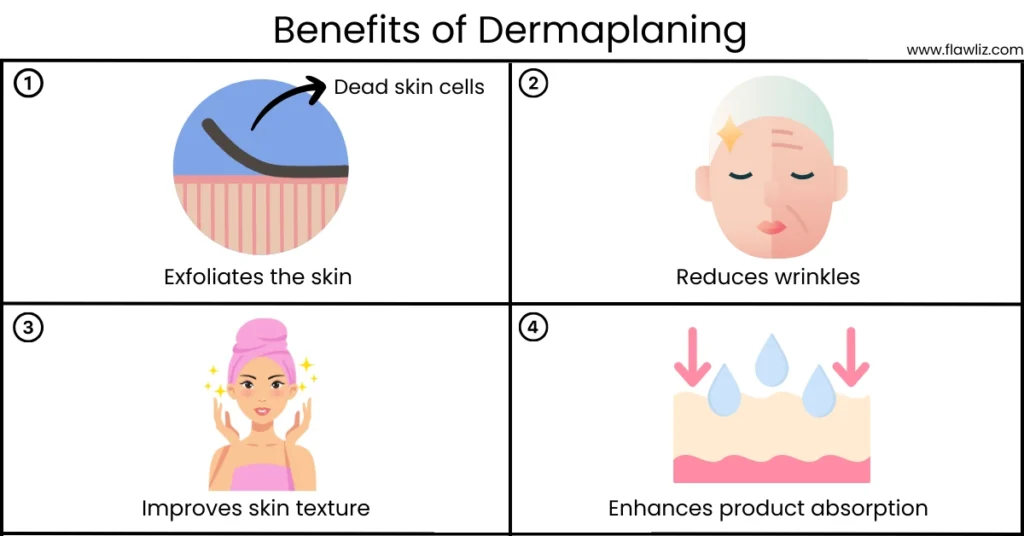
First and foremost, dermaplaning is a great way to exfoliate the skin. Removing the top layer of dead skin cells allows for better absorption of skincare products and a more radiant complexion. Additionally, dermaplaning can help with the appearance of acne scars and sun-damaged skin.
Remember: To get the most out of your dermaplaning experience, make sure to use a gentle cleanser and moisturizer afterwards. And don’t forget to wear sunscreen to protect your freshly exfoliated skin from harmful UV rays.
Now, let’s address the question on everyone’s mind: does dermaplaning make hair grow back thicker? According to Dr. Jack, a board-certified dermatologist, this is a myth. Dermaplaning removes vellus hair, also known as peach fuzz, from the face, but it does not affect the growth or thickness of the hair follicle. So, rest assured, you won’t grow a beard after dermaplaning your face.
In fact, dermaplaning can actually help with the appearance of unwanted facial hair. Removing the vellus hair creates a smoother canvas for makeup application and can even make the hair less noticeable.
Possible Side Effects of Dermaplaning
Dermaplaning is a popular exfoliation treatment that involves using a surgical scalpel to remove dead skin cells and vellus hair (peach fuzz) from the face. While the procedure is generally considered safe, there are some potential side effects to be aware of.
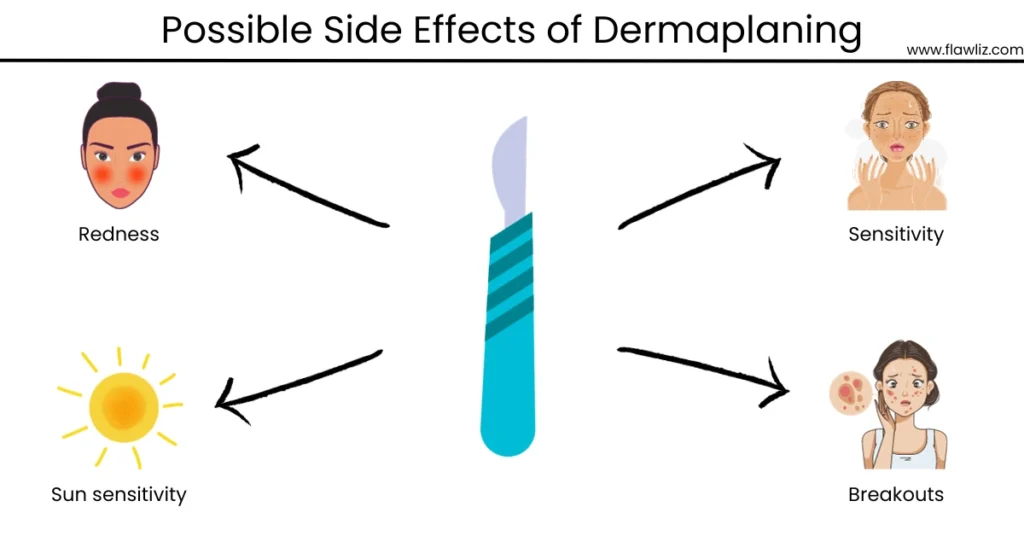
First and foremost, it’s important to note that dermaplaning does not make hair grow back thicker or darker. This is a common myth, but it simply isn’t true. Shaving off hair does not change the hair that grows back. The real reason why hair might appear thicker or darker is due to hormonal changes.
That being said, there are still some possible side effects of dermaplaning that you should be aware of. These include:
- Redness: After dermaplaning, your skin may appear red and slightly inflamed. This is a normal reaction and should subside within a few hours.
- Sensitivity: Your skin may also feel more sensitive than usual after dermaplaning. This is because the top layer of dead skin cells has been removed, leaving the fresh, new skin underneath exposed.
- Breakouts: In rare cases, dermaplaning can cause breakouts or acne flare-ups. This is because the procedure can sometimes push bacteria and oil deeper into the skin.
- Sun sensitivity: Dermaplaning can make your skin more sensitive to the sun, so it’s important to wear sunscreen and avoid prolonged sun exposure for a few days after the procedure.
In my personal experience, I have found that dermaplaning is a great way to achieve smoother, brighter skin. However, I did experience some redness and sensitivity after my first treatment. To combat this, I made sure to use a gentle moisturizer and avoid any harsh skincare products for a few days.
Dermaplaning: Procedure and Aftercare
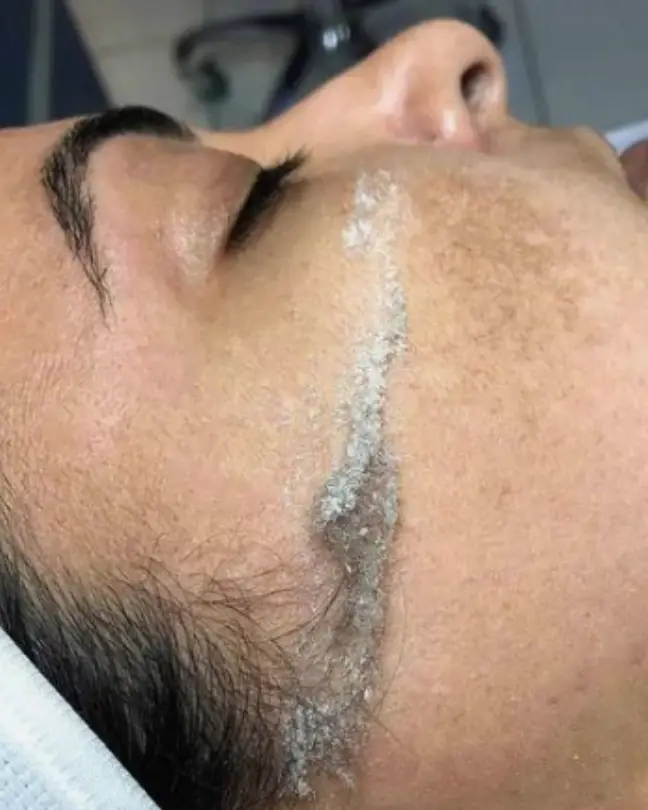
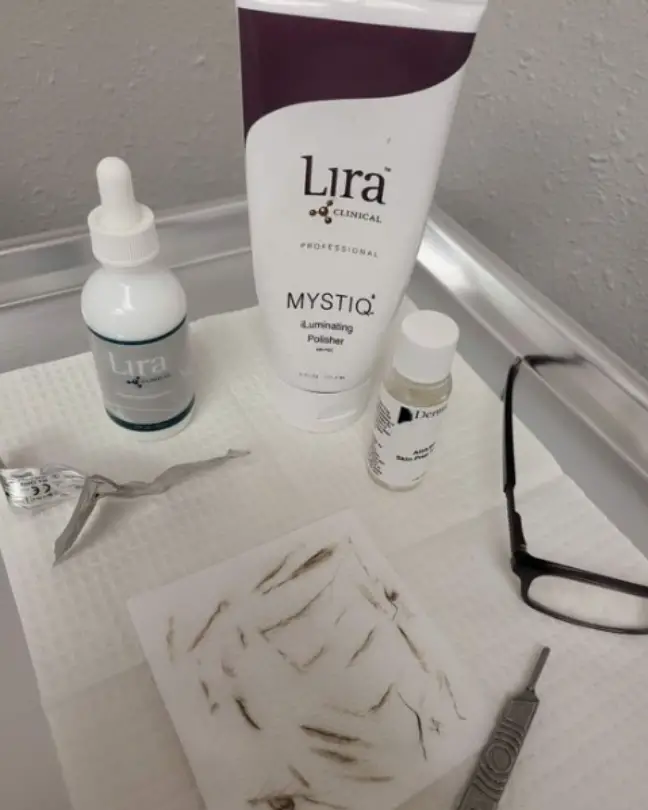
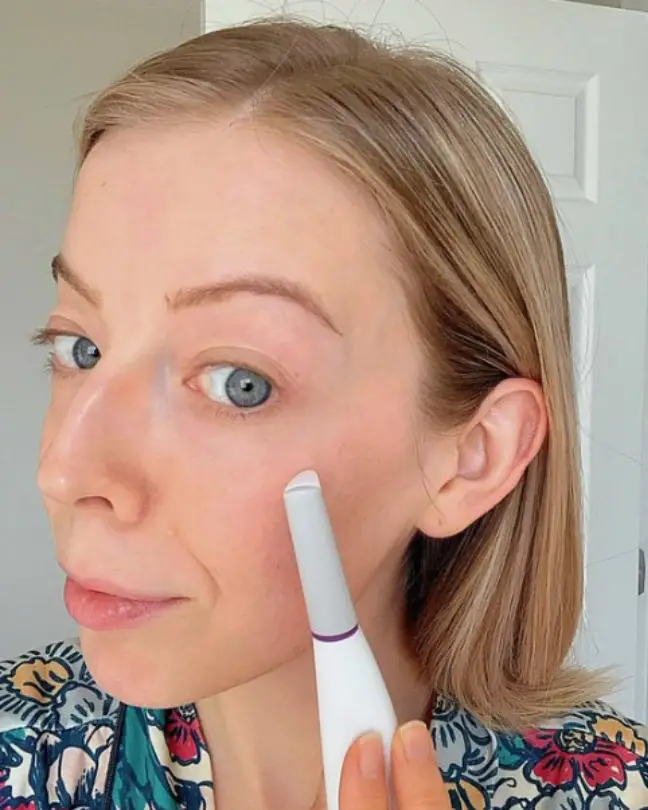
As someone who has undergone dermaplaning, I can attest to the amazing results this treatment can provide. Dermaplaning is a cosmetic procedure that involves using a small blade to gently remove dead skin cells and vellus hair (peach fuzz) from the surface of the skin. The result is smoother, brighter, and more youthful-looking skin.
During the procedure, a licensed esthetician or doctor will use a sterile blade to carefully shave the surface of the skin. The blade is held at a 45-degree angle and is moved gently across the skin in short, swift strokes. The procedure is painless and takes around 30 minutes to complete.
After the procedure, it’s important to take good care of your skin to ensure optimal results. Here are some tips to follow:
- Avoid direct sunlight and wear sunscreen with at least SPF 30.
- Avoid using harsh skincare products or exfoliants for at least a week.
- Use a gentle cleanser and moisturizer to keep your skin hydrated.
- Avoid touching your face or picking at any scabs that may form.
- Avoid sweating excessively or engaging in strenuous exercise for at least 24 hours.
- Use a clean pillowcase to avoid introducing bacteria to your freshly exfoliated skin.
One common question people have about dermaplaning is whether it will make their hair grow back thicker. The answer is no. While the hair may appear thicker as it regrows, this is simply because the hair that is regrowing has a blunt tip rather than a tapered one. Over time, the hair will return to its normal texture and thickness.
Pro Tip: If you’re looking to get the most out of your dermaplaning treatment, consider combining it with a chemical peel. This can help to further exfoliate the skin and improve the overall texture and appearance of your skin.
Does Dermaplaning Make Hair Grow Back Thicker: The Essentials
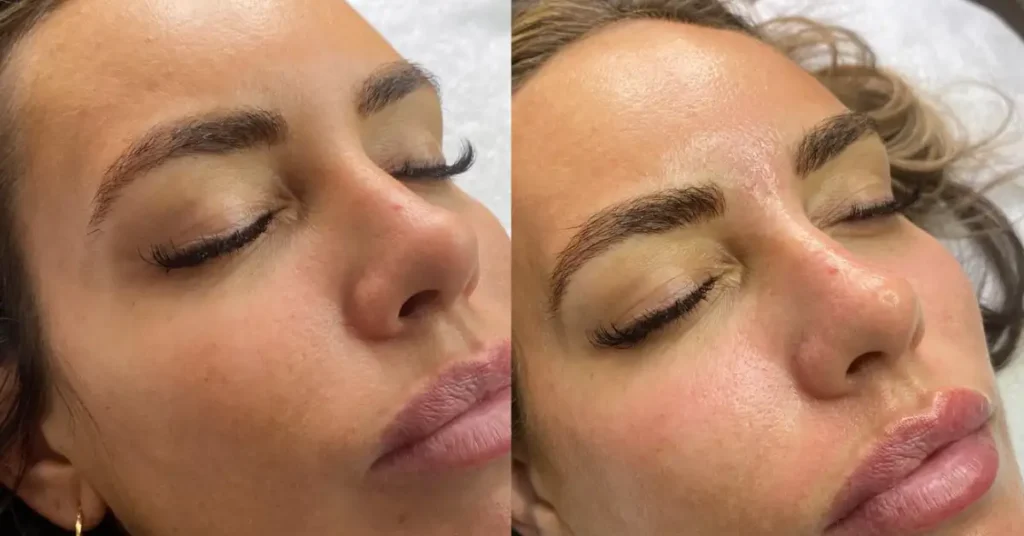
As someone who has undergone multiple dermaplaning sessions, I understand the concerns that many people have about whether or not the treatment will cause hair to grow thicker. After doing some research and speaking with my dermatologist, here’s what I’ve learned.
First and foremost, it’s important to understand what dermaplaning is. This treatment involves using a surgical scalpel to gently scrape away the top layer of dead skin cells and vellus hair – commonly known as “peach fuzz” – from the face. The end result is smoother, brighter-looking skin.
Now, onto the question of whether or not dermaplaning causes hair to grow back thicker. The answer is no. According to my dermatologist, the idea that shaving or removing hair from any part of the body will cause it to grow back thicker or darker is a common myth. In fact, dermaplaning only removes the hair from the surface of the skin, so it has no effect on the hair follicles or the rate of hair growth.
That being said, it’s important to note that everyone’s hair growth patterns are different. Some people may notice that their vellus hair grows back more quickly or appears thicker after dermaplaning, while others may not notice any difference at all. It’s also worth mentioning that dermaplaning is not a permanent solution for hair removal – the hair will eventually grow back, just as it would with any other hair removal method.
| Pros ✅ | Cons ❌ |
|---|---|
| Smoother, brighter-looking skin | Not a permanent solution for hair removal |
| Gentle exfoliation | May not be suitable for those with active acne or sensitive skin |
| Can help with the absorption of skincare products | Requires regular maintenance to maintain results |
In my personal experience, dermaplaning has been a great addition to my skincare routine. Not only does it leave my skin feeling incredibly smooth, but it also helps my skincare products absorb more effectively. While it may not be for everyone, I would definitely recommend giving it a try if you’re looking for a non-invasive way to improve the appearance of your skin.
FAQ
What happens when hair grows back after dermaplaning?
After dermaplaning, regrown hair typically feels softer and finer. It does not grow back thicker or darker, contrary to a common myth. Dermaplaning removes only surface vellus (peach fuzz) hair and doesn’t affect the hair follicle, resulting in smoother, softer regrowth.
Can dermaplaning cause more hair growth?
No, dermaplaning does not cause increased hair growth. It removes surface vellus hair (peach fuzz) without affecting the hair follicles, so hair regrowth remains the same in terms of thickness and density. The idea that dermaplaning causes more hair growth is a common myth.
Does dermaplaning cause thicker hair?
No, dermaplaning does not cause hair to grow back thicker. It may appear that way initially because the newly grown hair has a blunt tip, but it’s not actually thicker or darker. Dermaplaning only removes fine vellus hair from the skin’s surface and does not affect hair follicles.
What are the cons of dermaplaning?
The cons of dermaplaning can include potential skin irritation, redness, and breakouts, especially in individuals with sensitive or acne-prone skin. It’s also a temporary solution, requiring regular maintenance, and should be avoided for active acne or certain skin conditions.
Is dermaplaning just shaving?
Dermaplaning is similar to shaving in that it involves removing hair from the skin’s surface, but it’s performed using a scalpel-like blade by a trained professional. Additionally, it’s typically done for exfoliation and to remove dead skin cells, making it distinct from traditional shaving.
If you liked this blog article about the question: Does Dermaplaning Make Hair Grow Back Thicker? don’t forget to leave us a comment down below to tell us about your experience.

